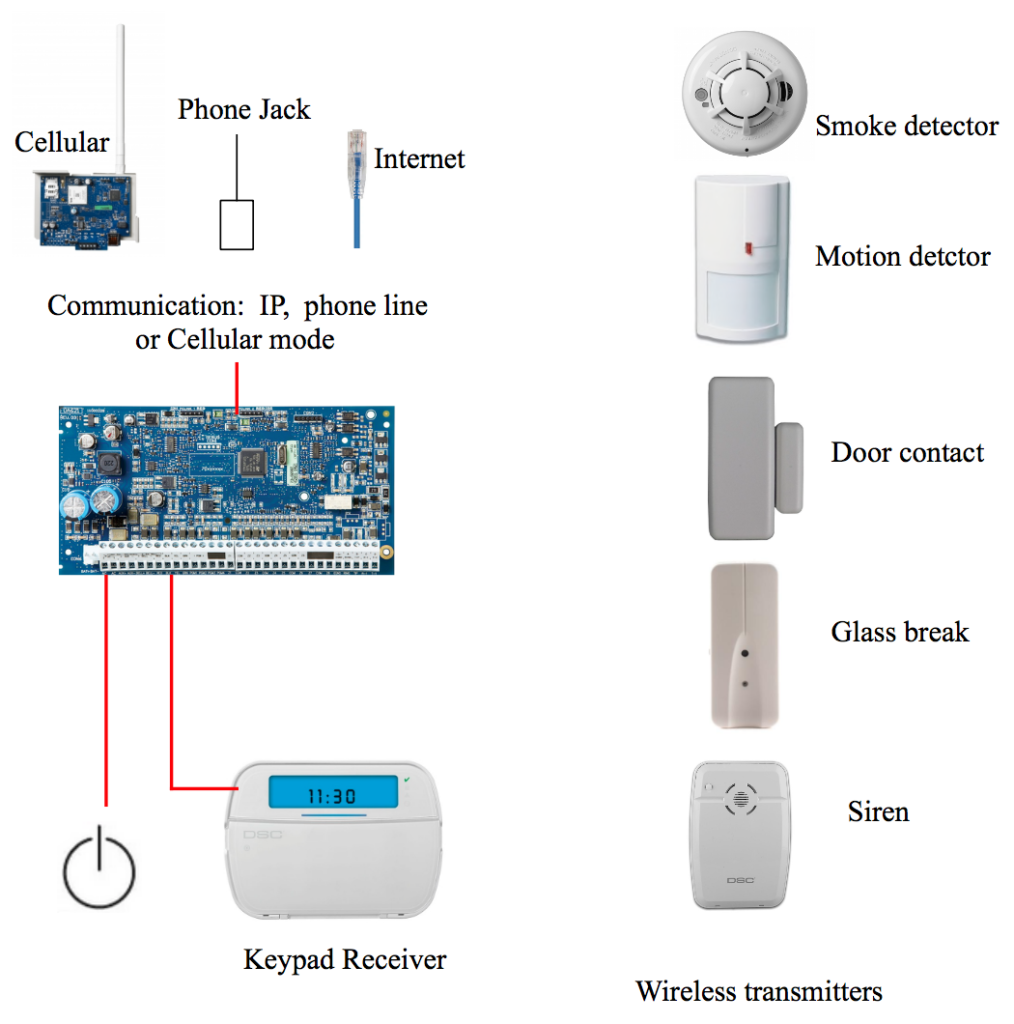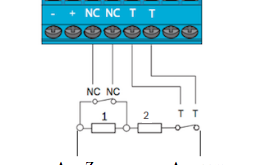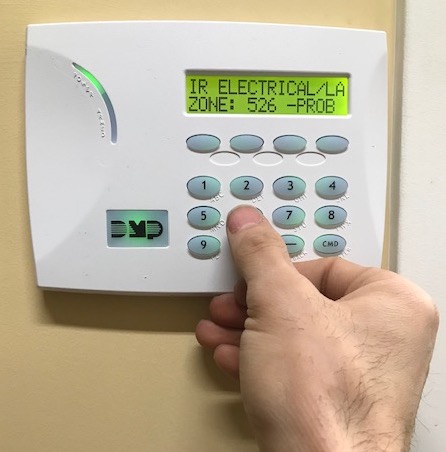If you are seeking for an alarm system for your property, it is certainly to keep it safe and to insure your peace of mind. Then you are certainly confronted to the following question :
should I go for the wired or the wireless system ?
In this article we will walk you through how wired and wireless systems are working and show you that your needs determine your choice because the two systems are reliable nevertheless, there are points of difference
First of all, let’s start with the similarity between the two systems
Is there any similarity between the two systems ?
So let’s quote the similarities before diving into the differences
a significant common point is that both of them protect your property, your protection will not decrease if you are using one or another, both of them are designed to watch over you and your property
The second similarity is that either hardwired or wireless systems are connected to the monitoring station via the same communication mode which are :
- Phone Line Dialing
- Cellular Communicator
- IP Communicator
Read more about systems communication
Finally, the user interface and the remote applications are often very similar on both systems of same manufacturer.
Difference between Hard wired and wireless alarm systems
The main difference between the two systems is the way the system’s devices communicate with the panel (the system’s brain). As their names indicate, the wired systems are wired to each of it’s components. While the wireless system communicates through radio signals with the components.
Let’s discuss in detail each system
Wireless alarm system
As said before, the system communicates with its components through radio waves. This solves a problem of drilling and fishing to bring the cable. It must be an excellent option for renters for example, for historic buildings as well or simply for existing buildings with very decorative interiors like hotel lobbies, glass walls buildings or buildings with particular brick or marble etc.
In addition, the wireless system can also be portable. That is to say ones can easily transport and then reinstall it it in his new residence
Misconception about wireless system
It is a misconception to think that there is no wire in a wireless system. Actually, some wire is still needed. For example, to drive power to the panel. Also at least one keypad must be wired to the panel for operations then others are optional. In addition that any communication mode of the system is through a wire : that is to say either land line communication or cellular or IP, need the wire to establish the communication.
Below is a diagram that shows a wireless system with wired components and wireless components components
(The images of the equipements in the diagram are DSC devices)

Advantages of wireless system
- Faster and easier to install
This saves time of installation since there is no wiring no fishing of the cable. As a result, it is less expensive and a good option for a do it yourself
- It is portable
So if someone moves he can uninstall it and reinstall it in new residence easily
- The wireless system fits to all kinds of buildings
Many buildings don’t allow to cabling (historic buildings) the wireless systems are a good option
Disadvantages of wireless system
- Reception issues
Often because of the building structure : concrete walls or metal reinforcement block the radio waves. We check this issue during the installtion
- We need to change batteries of all components periodically
The device communicates regularly the status of its battery to the alarm panel. If a battery is low, the system displays a Device Low Battery trouble
Hard wired alarm system
As its name indicates, the hard wired system communicates with its components through wired electrical signals. and that is the main difference the two systems.
many prefer the hard wired alarm systems to the wireless type. according to them wiring provides a more reliable connection than wireless radio waves.
The components of the hard wired system are the same than the wireless one except that they are wired.
Hard wired systems are easiest to install during the contraction before drywalling the walls and the ceilings
Hybrid systems
there is no real separation of the two kinds of systems. because in some cases we need to install both in one. for example building with accessible parts that are easy to wire, and non accessible parts which require. This systems are called hybrid

